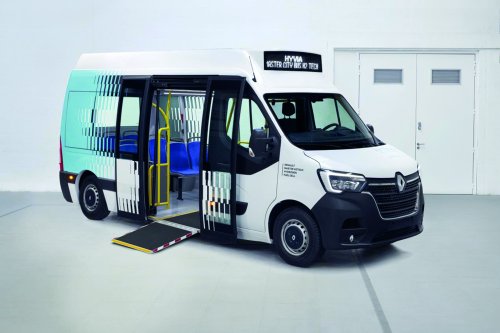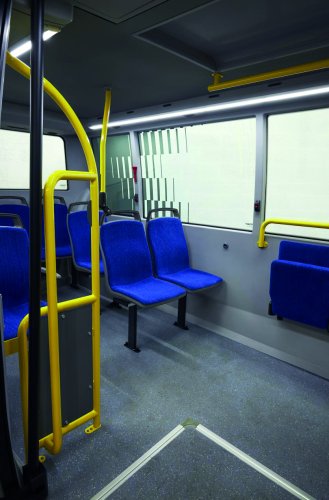UK-based commercial vehicle technology, chassis and powertrain integration specialist Promech Technologies has announced a partnership agreement with Renault Group and its specialist vehicle subsidiary, PVI.
The Renault Master City Bus H2-TECH, an electric-hydrogen bus based on a Renault Master ZE-h platform, represents the first product development in the partnership and was unveiled earlier this month at Salon des Maires in Paris by Hyvia, a joint venture between Renault Group and hydrogen solutions provider Plug Power Inc.
The announcement signals the first major OEM collaboration for newly-formed Promech Technologies. Part of the Woodall Nicholson group of specialist vehicle brands, Promech is also receiving substantial investment for a new, 54,000 sq.ft. purpose-built facility in Scarborough, North Yorkshire, scheduled for opening in autumn 2022.
The Promech, Renault Group and PVI partnership also promises the development of a wider range of city buses with low-floor battery-electric and hydrogen fuel cell (HFC) technology for UK and European markets. The partners expect a complete product line-up to be available to order from 2022.
The partners explained that the new Hyvia city bus brings together the automotive industry’s two new energy drive systems, battery electric and hydrogen fuel cells, which is made possible thanks to integration with Promech’s low-floor chassis and body. This, they believe, result provides scope to deliver range-extending, zero-emissions vehicles to meet customer requirements across three distinct market sectors including local passenger transport, urban distribution, and emergency services.
Using Promech’s chassis and lightweight body engineering expertise, the manufacturers believe that the vehicle presents a unique proposition for operators, offering structural integration of the battery electric and fuel cell components. Promech has designed a 250mm single-step access to the passenger area with underfloor positioning of the battery pack for stability, and without compromise to the passenger carrying capability or the external vehicle dimensions.
The design provides single-step access, a low flat floor to all seats and wheelchair accessibility integrated into a monocoque body construction which the manufacturer says enables good utilisation of available space while maintaining internal passenger height. The dual-powered vehicle will feature a fully electric powertrain comprising a 33kWh lithium-iron battery and supplemented by a roof-mounted and range-extending 30kW hydrogen fuel-cell. The manufacturer claims that this combination delivers a commercially viable range of 300km between recharging.
Woodall Nicholson’s Chief Technology Officer, John Randerson, said: “The ingenuity and expertise of the Promech team allowed us to rethink how battery electric and HFC components are integrated and how this might be adapted for the European city bus market; practically extending vehicle range while not compromising internal space. The design briefing was clear: to develop a specialist integration system supporting two zero-emission solutions while delivering user ergonomics for our customers. We are delighted with the city bus solution. it’s great to see what can be achieved on a vehicle of this size.”



